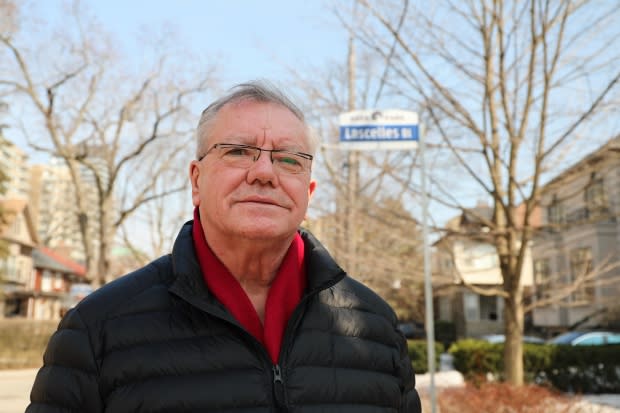Toronto the piecemeal: From snow clearing to housing policy, why do the rules change in different areas?
The snow has melted away, but John Plumadore's memories of falling on a slick sidewalk are still clearer than ice.
The Deer Park resident slipped and fell back in February, aggravating an earlier dislocated shoulder and leaving him wondering even now if he might have a mild concussion.
The reason for his fall? Plumadore says it's all because his midtown neighbourhood doesn't receive sidewalk snow clearing from the city, unlike various other areas — leaving many elderly and mobility-reduced residents stuck navigating icy, unsafe pathways.
"We're not all equal," he says.
Plumadore isn't alone in raising concerns about the piecemeal nature of Toronto's services. In particular, snow clearing efforts, which vary between the downtown core and the suburbs and, at times, between nearby streets, made headlines this winter.
But it's not the only area where there are striking differences in city policies and services.
From leaves to cars to housing
In the fall, for instance, there's a two-tier system for where and how the city collects leaves.
For most neighbourhoods, there's regular bagged collection, with the city picking up yard waste every other week on garbage collection day from mid-March to mid-December.
But in certain areas of Etobicoke and Scarborough, residents are offered mechanical leaf collection — where the city uses equipment to collect leaves raked into piles on the edges of roadways. The "limited service" is meant to help prevent flooding and road icing thanks to clogged catch basins in neighbourhoods with roadside ditches, according to city staff.

There are also differences in parking permit rules. In the areas once known as East York, Etobicoke, Toronto, and York, drivers can order temporary day, two-day, or weekly parking permits — a service the city says is meant to help out in areas where driveways aren't common.
But in Scarborough and North York, you're out of luck.
City policies can be varied as well, including on the housing front.
The current regulatory system for secondary suites is a two-tier one, where downtown townhouses are allowed built-in rentals while suburban ones are not.
It's a similar scene for rooming houses, which are legal within the boundaries of the former city of Toronto and Etobicoke, but are currently outlawed in Scarborough due to pre-amalgamation zoning bylaws.
Change is needed, advocates say
What's baffling to many is why this piecemeal system still exists — two decades after the six former municipalities comprising the current City of Toronto were amalgamated.
"It took years to harmonize the zoning bylaws, and there are some services that still haven't been harmonized," says Coun. Josh Matlow, who says the current system can be both inequitable and unsafe for residents.

In many instances, it's simply policies that were grandfathered in from those formerly distinct entities.
But that's no excuse, according to long-time Coun. Frances Nunziata, who has previously tried to end the city's two-tier leaf collection system with no luck.
"Every municipality had their own service levels and programs, and now some communities have it, some communities don't... it's not fair," she says. "We have to make it equal: Everyone needs the same level of service."
Michal Hay, executive director of social justice advocacy organization Progress Toronto, said those disparities spill into other areas as well, from child care spaces to recreation spots being offered in different parts of the city.
"People in Toronto should expect the same quality of life, regardless of where they live," she says.

On the snow front, it seems there could be concrete change on the horizon.
In a letter to city staff in February, Mayor John Tory called for a review of the city's winter operations after his office received more than 150 community complaints. One of his requests was for staff to explore the potential benefits of "harmonizing the city's sidewalk clearing," and a report back is expected in May.
There's also a leveled playing field likely coming for city-wide townhouse owners hoping to enter the rental market.
City staff recently suggested that council relax rules around secondary suites like basement apartments, which would include allowing suites in townhouses across the city — not just downtown.

